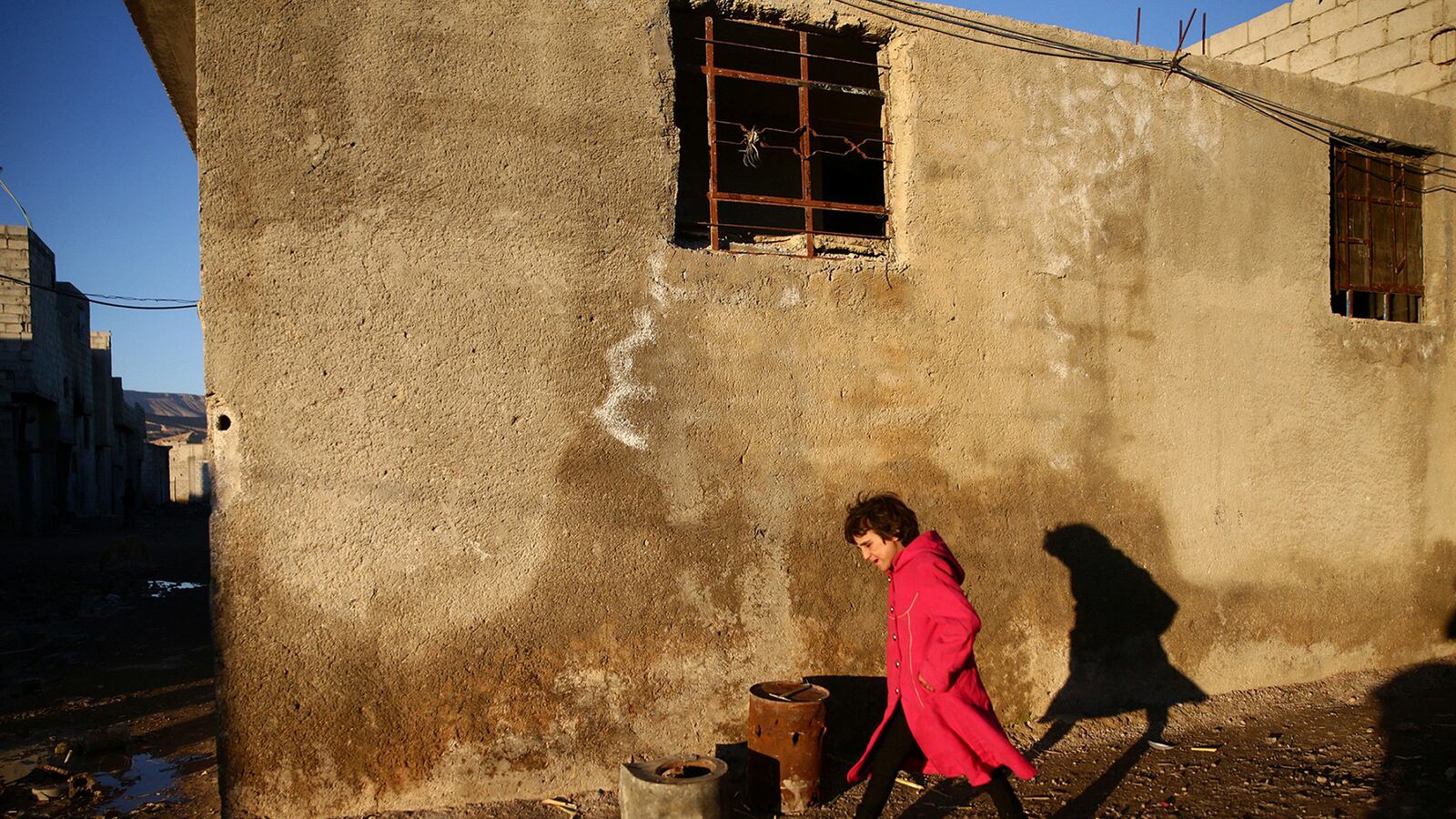Wadi Barada, Damascus, was once an area known for summer picnics, cool breezes and popular cafes. As a born Damascene, I went there regularly during the summer to attain relief from the scorching heat. My cousin, who now has four kids, even met his wife in Wadi Barada after the two of them happened to picnic near each other one lucky weekend.
But last week, as the bombs started falling, Wadi Barada turned into hell on earth.
Napalm, explosive barrels, and tank shells rained down and left dozens of civilians killed and wounded. Hospitals and other civilian infrastructural facilities were deliberately targeted. The result was not only a humanitarian catastrophe but also perhaps the worst environmental catastrophe of the entire war.
Let's take California for a comparison. California is currently experiencing a historic water shortage, including nearly three years under a drought state of emergency. Homes and businesses have faced long-term water rationing that stands to be extended under the conservation plan released by state authorities last month. But at least in California, the state works to mitigate the crisis. In Syria, the state is the cause of it.
Millions of residents of Damascus are without water today due to the blistering bombing against Wadi Barada, where many fear they will soon meet the fate of Aleppo, which saw mass rapes, summary executions, and hundreds dead as regime forces seized the city. Indeed, after regime forces captured Aleppo, Wadi Barada residents began receiving chilling messages similar to the warnings that threatened Aleppo residents last month.
As the regime bombing progressed, pro-regime sources spread false rumors that Wadi Barada residents were about to poison the Barada spring by pouring diesel into the water. These rumors were most likely a cover for what Assad regime forces were about to do. Starting last weekend, locals reported heavy bombings that appeared to be targeting the Wadi Barada spring and aquifer.
No freshwater spring could exist without an aquifer -- an underground rock cavity formed by long-term water erosion. Rain water builds up underground in the aquifer, usually over the course of millennia, before the aquifer is finally filled and water bubbles out of the ground as a spring. Because of how long the aquifer-filling process takes, compensating for drops in aquifer water levels is extremely difficult. One reason for California's water plight is that residents have been depleting the key Central Valley aquifer at twice the historical average, causing the ground to sink 1.5 feet in some locations.
Assad regime warplanes took Syria's water supply by thousands of years last week when they finally hit the Barada aquifer and caused massive damage to the aquifer itself. Aquifer water levels plunged by about a third, depriving Syria's largest city of Damascus of its main water source. Damascus has been struggling through a water crisis for two weeks and counting.
It is unclear how Damascus' water supply can be replenished, or if it even can. Although regime authorities have placed water pumps in selected neighborhoods, this is not a long-term sustainable option. More likely is that Damascus simply does not have the water to support as many residents as before. This means many Damascenes will simply flee -- creating more refugees. It also may allow the regime to reduce the populations of historically rebellious areas by restricting water access.
Only a truly deranged and power-hungry regime would wreck the water source of its most populous city to conquer ten small villages that, quite frankly, were already on the cusp of defeat. But now that regime forces are closing in, the tragic consequences will become much higher.
Continued bombing raids on Wadi Barada area risk destroying the aquifer entirely and could render much of Damascus unlivable. Local residents, under siege for over a year and armed with only light weapons, can only hold out for so long. Against such massive firepower, it is only a matter of time before Wadi Barada falls, just as the neighboring towns of Zabadani and Madaya fell, triggering harrowing scenes of mass starvation.
Despite a recent nationwide ceasefire agreed upon by Russia, Iran and Turkey last week, Assad regime propaganda is justifying continued attacks on Wadi Barada with claims that Fatah al-Sham - a former Al-Qaeda affiliate excluded from the ceasefire - is present in Wadi Barada. The regime, and its allies on the ground Iran and Hezbollah, wish to use this as a pretext to seize control of Wadi Barada as the last remaining rebel pocket between Damascus and Hezbollah-dominated territory in Lebanon.
But Wadi Barada is known to be an area held by local residents who took up arms, and bombing has continued apace even though local civil society released a declaration last week certifying that there was no Fatah Sham presence in the area. Locals are asking for the United Nations to be allowed entry into Wadi Barada, for humanitarian assistance, to stay in their homes and not be forcibly displaced, and for maintenance crews to be allowed entry to fix the aquifer.
Ideally, the international community would mobilize to save the people of Wadi Barada, as well as the aquifer, from imminent destruction. In practice, this option has long been taken off the table by President Obama. It therefore falls to Russia - which desires a more limited Syria intervention, though it has the blood of thousands of Syrian civilians on its hands - to determine how far it wants to be dragged by the ambitions of its Iranian and Assad regime allies for a total and ruthless military victory.






